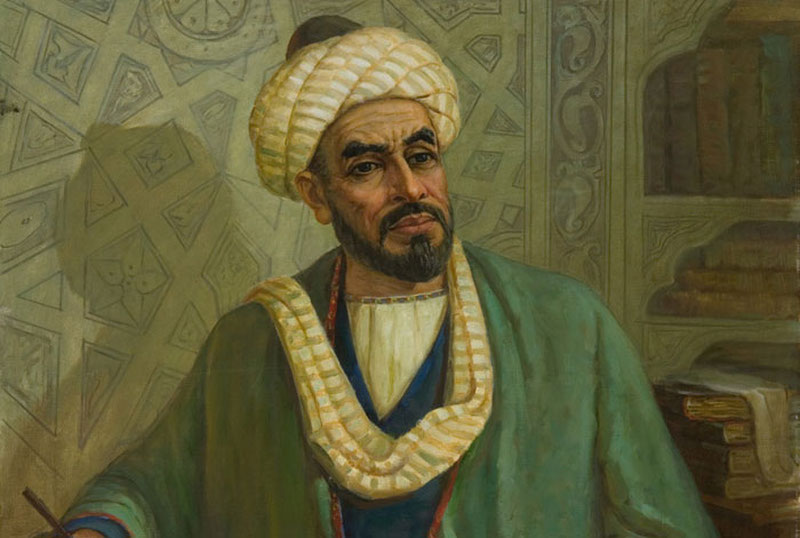Did you know that the real foundation of digital technologies, artificial intelligence, and other groundbreaking discoveries was not in Europe but in the East – discovered by Al-Khwarizmi? Recognized as an original innovator in the field of science, Abu Abdullah Muhammad ibn Musa al-Khwarizmi not only changed the direction of civilization in his era but for all of humanity. His name is embodied today in the world of science as the root of two great terms: "algebra" and "algorithm". This was reported by the Information Service of the Islamic Civilization Center.
Today's digital devices, programming, databases, cryptography, artificial intelligence, and even in space research, all stand on the scientific discoveries of al-Khwarizmi. Realizing this, we deeply feel how the modern world relies on a great and profound scientific heritage.
Al-Khwarizmi – an original innovator in the field of science, his legacy is not just in one area but is manifested in several branches of mathematics, astronomy, geography, geometry, arithmetic, and computational systems. Through his work "Kitab al-jabr wal-muqabala", algebra was formed as an independent science, his treatises on arithmetic spread the decimal positional system throughout the world, and his "Zij" work began a new era in astronomy. His works like "Kitab surat al-ard" presented precision and scientific method in geography, while his map "al-Kharita al-Mamuniya" formed a global perception.
Interestingly, al-Khwarizmi achieved high results not in one direction but in many fields such as mathematics, astronomy, geography, geometry, and computational systems. In an era when we talk about interdisciplinary integration, the example of universal scholars like al-Khwarizmi is more relevant than ever. Indeed, he was not only a theoretical scientist but also possessed deep practical thinking, deeply understanding the significance of knowledge in society's life.
Al-Khwarizmi was born around 783 in Khwarezm. There is no precise information about his childhood years and initial education. However, it is assumed that the scientist received his initial education in Khwarezm and other cultural centers of Central Asia. After al-Ma'mun, the son of Caliph Harun al-Rashid, took the caliphate throne in 813, Al-Khwarizmi was invited to Baghdad. There, he worked and even led at the "Bayt al-Hikma" – namely, the "House of Wisdom", an academic institution.
The role in the development of science
Al-Khwarizmi made world-famous discoveries in the fields of mathematics, astronomy, and geography. One of his most important works in the field of mathematics is the treatise "Kitab al-jabr wal-muqabala". Through this treatise, algebra was shaped as an independent science. It presented methods for solving linear and quadratic equations in general forms. This formed the foundation of today's algebra science.
The concept of Arithmetic and Algorithm
In his treatise on arithmetic, al-Khwarizmi substantiated the methods of expressing large numbers with the help of nine digits and zero (small circle) taken from the Indians. This served to introduce the decimal positional system, which later spread throughout the world. The Latin translation of the treatise begins with "Dixit Algorizmi" ("Al-Khwarizmi says"). The term "Algorizmi" is derived precisely from Al-Khwarizmi's name, later entering modern science as "algorithm".
The field of astronomy – the "Zij" work
Al-Khwarizmi's work on astronomy, called "Zij", is considered a significant scientific achievement of its time. It includes important information about the movement of the Sun, Moon, and five visible planets, trigonometry, geographic coordinates, and the phenomena of lunar and solar eclipses. Especially, the section on trigonometry first systematically presented tables of sine and cosine functions. This work later served as an important source for Mirzo Ulugbek and other scientists.
Contribution to geography and map making
Through his map "al-Kharita al-Mamuniya", Al-Khwarizmi also made a significant contribution to the science of geography. This map was drawn on the wall of Caliph al-Ma'mun's palace and depicted the inhabited quarter of the Earth – rub' al-masukh. It refuted the incorrect idea proposed by Ptolemy, namely that "the land is surrounded by the world ocean". On the contrary, Al-Khwarizmi scientifically showed the surrounding of the land by the ocean. This was a major scientific turnaround for that time.
"Kitab surat al-ard" - geographical description
Al-Khwarizmi's work "Kitab surat al-ard" included the coordinates of nearly 2400 geographical points. It named the Pacific Ocean "al-Bahr al-muzallam", and also contained information about the Korean Peninsula and the Japanese Islands. This book, along with geographical maps, should be studied as a unique scientific source.
The impact of scientific heritage
Al-Khwarizmi's works spread widely not only in the Muslim East but also in Europe. His works on algebra and arithmetic translated into Latin formed the basis for the formation of science in medieval Europe. Especially, the concept of "algorithm" is considered as one of the theoretical foundations of today's modern computer technologies.
Whether we open a calculator on our phone, find a way on a map, or write code — essentially, we are in sync with Al-Khwarizmi. His principles live in our everyday decisions. Thus, he lives not in history, but in the present. Not just in books — but in our very lives.






